BA (Hons) English and Creative Writing


Key Information
Brayford Pool
Typical Offer
Academic year, course overview.
Study world literature, explore your talents, and build a solid technical foundation as a writer with this joint honours degree.
BA (Hons) English and Creative Writing enables students to consider literature from a variety of theoretical, historical, and cultural perspectives. These include poetry, fiction, and drama, as well as less traditional literary forms, such as non-fiction, audio drama, and graphic novels.
Throughout their studies, students can develop their craft as authors, building their own portfolio of creative writing pieces across a wide range of popular formats.
Teaching on the programme is enhanced by workshops, readings, and masterclasses with visiting authors. This gives students practical experience and enables them to learn from experts in the field. Recent students have enjoyed visits from Poet Laureate Dame Carol Ann Duffy, author and TV presenter Chris Packham, and art historian Andrew Graham-Dixon.
Why Choose Lincoln
Subject area ranked 3rd in the UK for student satisfaction*
Optional field trips to places of interest in the UK
Option to study abroad at a partner university
Active research community of staff and students
Hear from guest speakers including published authors
Build your portfolio of creative writing pieces
*Out of 49 ranking institutions in the Complete University Guide 2025.

How You Study
This course introduces students to literary forms and theories, enabling them to explore texts and authors from past and present. They are able to study the various approaches to creative writing through the close reading of major contemporary authors, examining their techniques and applying them to the production of original, imaginative work.
In the third year, a wide range of optional modules enables students to pursue areas of particular interest and develop their portfolios while engaging in individual research. This reflects the programme's clear focus on employability, which aims to prepare students for a professional writing or publishing career.
- Foundation Year
- Second Year
- Master's Level
- Doctoral Level
† Some courses may offer optional modules. The availability of optional modules may vary from year to year and will be subject to minimum student numbers being achieved. This means that the availability of specific optional modules cannot be guaranteed. Optional module selection may also be affected by staff availability.
We want you to have all the information you need to make an informed decision on where and what you want to study. In addition to the information provided on this course page, our What You Need to Know page offers explanations on key topics including programme validation/revalidation, additional costs, contact hours, and our return to face-to-face teaching.
How you are assessed
The University of Lincoln's policy on assessment feedback aims to ensure that academics will return in-course assessments to students promptly - usually within 15 working days after the submission date.
The way students are assessed on this course may vary for each module. Examples of assessment methods that are used include coursework, such as written assignments, reports or dissertations; practical exams, such as presentations, performances or observations; and written exams, such as formal examinations or in-class tests. The weighting given to each assessment method may vary across each academic year. The University of Lincoln aims to ensure that staff return in-course assessments to students promptly.
Staff Expertise
Lincoln’s English academics are research leaders in their fields, and their projects directly inform their teaching. There are particular strengths in 21st Century literature, 19th Century literature, Gothic studies, American literature, and the medieval. Students may benefit from readings and masterclasses by published authors and guest speakers in the creative industries. Previous guests have included Dame Carol Ann Duffy, Dame Penelope Lively, and Patience Agbabi.
Study Abroad
In the second year, students have the option to select a Study Abroad Period. Students can spend a term studying at one of the University’s partner institutions.
In order to participate, students are usually expected to obtain a 2:1 or higher in first year, have a good record of attendance and participation, and must complete an application process. A limited number of places will be available each year, and participation is at the discretion of the module co-ordinator and the Programme Leader. Students are responsible for travel, accommodation, and general living costs while studying abroad.
The University of Lincoln’s Creative Writing programme is unparalleled, offering a diverse range of modules and exceptional academic support. In comparison to programmes offered by other universities, it is by far the most outstanding I’ve seen.
Jessica Toye
BA (Hons) English and Creative Writing graduate
What Can I Do with an English and Creative Writing Degree?
English and Creative Writing graduates may choose to pursue careers in various literary and creative professions, such as publishing, journalism, advertising, public relations, marketing, the civil service, and communications. Students can continue their studies at postgraduate level or take qualifications in teaching.
Lincoln graduates have gone on to work at regional and national media outlets including the BBC, The Daily Mail, and Channel 4.
Entry Requirements 2025-26
United kingdom, international.
104 UCAS Tariff points from a minimum of 2 A Levels or equivalent level 3 qualifications.
BTEC Extended Diploma: DMM
T Level: Merit
Access to Higher Education Diploma: 45 Level 3 credits with a minimum of 104 UCAS Tariff points
International Baccalaureate: 28 points overall.
GCSE's: Minimum of three at grade 4 or above, which must include English. Equivalent Level 2 qualifications may be considered.
The University accepts a wide range of qualifications as the basis for entry and do accept a combination of qualifications which may include A Levels, BTECs, EPQ etc.
We may also consider applicants with extensive and relevant work experience and will give special individual consideration to those who do not meet the standard entry qualifications.
Non UK Qualifications:
If you have studied outside of the UK, and are unsure whether your qualification meets the above requirements, please visit our country pages https://www.lincoln.ac.uk/studywithus/internationalstudents/entryrequirementsandyourcountry/ for information on equivalent qualifications.
EU and Overseas students will be required to demonstrate English language proficiency equivalent to IELTS 6.0 overall, with a minimum of 5.5 in each element. For information regarding other English language qualifications we accept, please visit the English Requirements page https://www.lincoln.ac.uk/studywithus/internationalstudents/englishlanguagerequirementsandsupport/englishlanguagerequirements/
If you do not meet the above IELTS requirements, you may be able to take part in one of our Pre-sessional English and Academic Study Skills courses.
https://www.lincoln.ac.uk/studywithus/internationalstudents/englishlanguagerequirementsandsupport/pre-sessionalenglishandacademicstudyskills/
If you would like further information about entry requirements, or would like to discuss whether the qualifications you are currently studying are acceptable, please contact the Admissions team on 01522 886097, or email [email protected]
Contextual Offers
Fees and scholarships.
Going to university is a life-changing step and it's important to understand the costs involved and the funding options available before you start. A full breakdown of the fees associated with this programme can be found on our course fees pages.
Course Fees
For eligible undergraduate students going to university for the first time, scholarships and bursaries are available to help cover costs. To help support students from outside of the UK, we are also delighted to offer a number of international scholarships which range from £1,000 up to the value of 50 per cent of tuition fees. For full details and information about eligibility, visit our scholarships and bursaries pages .
Students are responsible for travel, accommodation, and general living costs while on study abroad.
Find out More by Visiting Us
The best way to find out what it is really like to live and learn at Lincoln is to visit us in person. We offer a range of opportunities across the year to help you to get a real feel for what it might be like to study here.

Explore Related Courses

BA (Hons) Creative Advertising

BA (Hons) Creative Writing
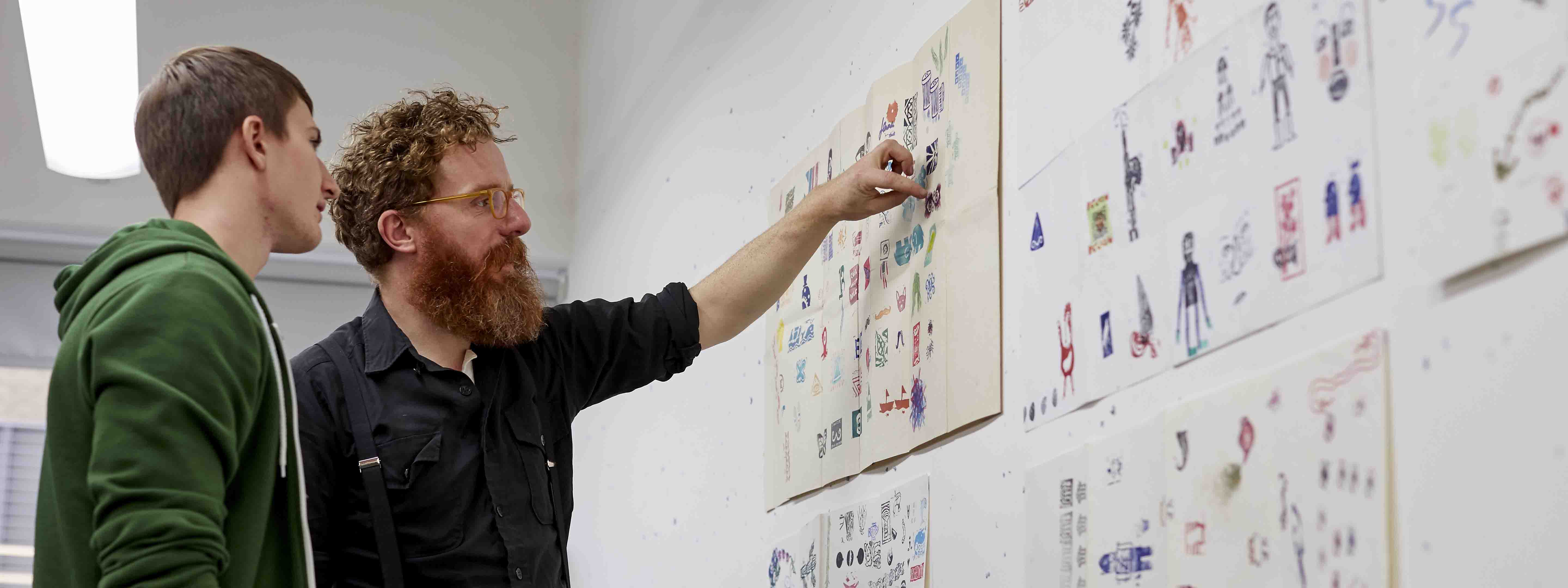
BA (Hons) Graphic Design
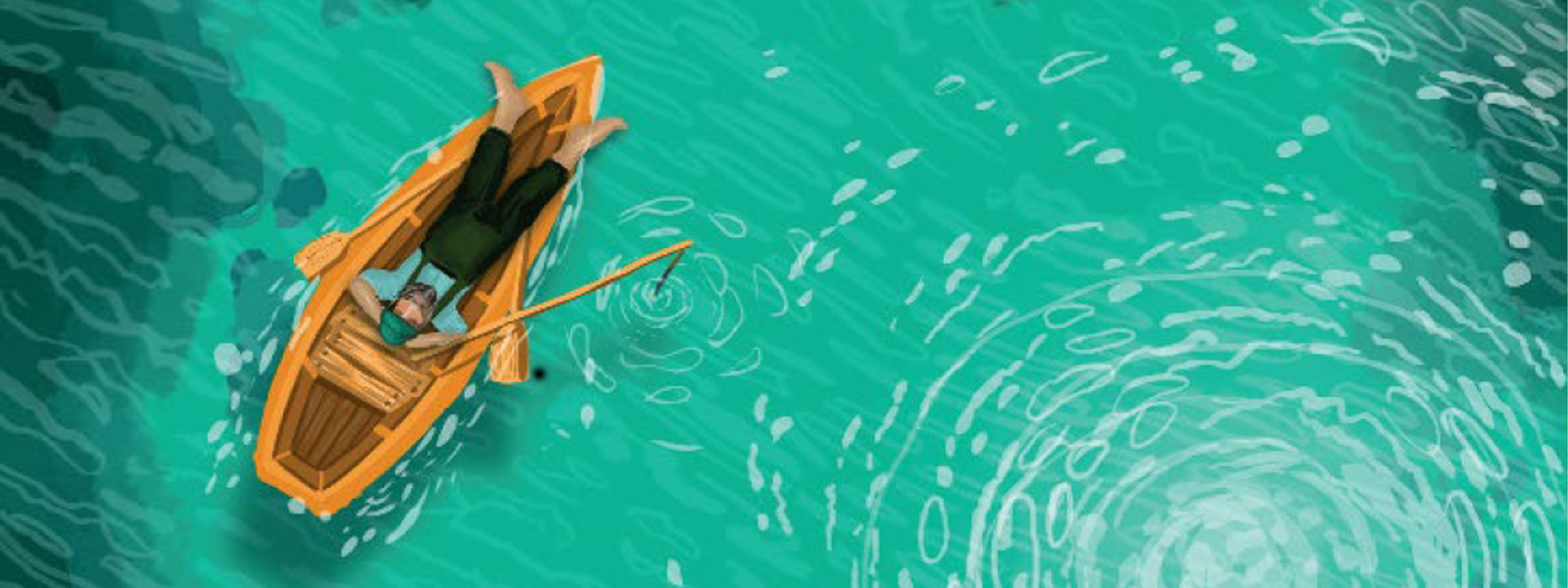
BA (Hons) Illustration

BA (Hons) Marketing and Advertising
- Visit the University of Nebraska–Lincoln
- Apply to the University of Nebraska–Lincoln
- Give to the University of Nebraska–Lincoln
Search Form
Graduate creative writing.
The Department of English offers an M.A. and Ph.D. specialization in creative writing. Students accepted into the program can take creative writing workshops along with courses in literary studies and composition and rhetoric. The M.A. thesis consists of creative activity and scholarship; Ph.D. students complete a dissertation that includes a book-length work of poetry, fiction, or creative nonfiction, and a scholarly component.
Creative Writing Program Genres
Every year, the Creative Writing Program accepts applications to the M.A. or Ph.D. programs only in a specific genre. Admissions in "poetry" or "fiction/nonfiction" alternate in each subsequent year.
Graduate Admissions
Fall 2023 Admissions
Fiction / Nonfiction
Fall 2024 Admissions
Accomplished alumni.
Alumni of the Creative Writing Program have gone on to shape and influence the national literary voice, their work reviewed everywhere from the New York Times to People magazine , the Wall Street Journal to Vogue , the Washington Post to Vanity Fair . They’ve published their work in Harper’s , the Guardian , the Nation , the New York Times , and the New Yorker . They’ve received recognition from the Pulitzer Prize, the National Endowment for the Arts, National Public Radio, The Today Show, Best American Essays, Best American Poetry, and Best American Stories, among others.
Among recent successes:

What Happened to Ruthy Ramirez by UNL Creative Writing alum Claire Jiménez (PhD, 2022) is longlisted for the PEN/Faulkner Award! Additional praise: starred reviews from Publishers Weekly, Booklist, Library Journal, and Kirkus, among others; a best book of the month by Ms., Time, and Shondaland; a Good Housekeeping Must-Read Book of 2023, and a Today.com Standout Book of 2023.

Plastic by UNL Creative Writing alum Scott Guild (PhD, 2020) has been called “an inspired allegory” by Publishers Weekly, and “cinematic,” by Booklist, “with tones of Black Mirror’s ethical acuity and the quirkiness of Everything Everywhere All at Once.”

A Kind of Madness by current UNL Creative Writing PhD student Uche Okonkwo, forthcoming from Tin House, is an Oprah Daily Most Anticipated Book for 2024.

Ava Nathaniel Winter, a UNL Creative Writing alum (PhD, 2023) and current lecturer, was named one of the five winners of the 2023 National Poetry Series. Her manuscript, Transgenesis, selected by poet Sean Hill, will be published by Milkweed Editions in August 2024.
This is just a taste of the fantastic writing and editing by our alumni and students. To learn more about our alumni’s accomplishments, visit our alumni page or browse our galleries of books by alumni and students .
Award-Winning Faculty
English graduate students have the opportunity to work closely with a devoted and accomplished faculty. Among the awards won by the Creative Writing faculty and their literary works: the Pulitzer Prize; Guggenheim fellowship; National Endowment for the Arts fellowships; PEN America prizes; International Latino Book Award; and the NAACP Image Award. Books by faculty have also been recognized and spotlighted by: the Man Booker Prize; the Oprah 2.0 Book Club; Barnes and Noble Discover series; and the New York Times Notable Books of the Year.
Faculty Directory

Information for Current Graduate Students
Most of the information you’ll need is available in the English M.A. and Ph.D. handbooks , which include the specifics of supervisory committees, thesis/dissertation readers, field and focus lists, comprehensive exams, thesis/dissertation defense, teaching assignments, etc.
Master’s and Ph.D. students must remain aware of deadlines and timelines for completion of the program. This involves forms that need to be completed, and signed by faculty, throughout the program of studies. When you are in your last year/semester of your program, you’ll want to be especially alert to dates, and to the intricacies and demands of required forms.
A number of online resources can help you keep to deadlines and provide links to necessary forms. These include the following very useful pages of the Graduate Studies and English websites:
Degree Planning for M.A. Students
M.A. Deadlines
M.A. Timeline
Degree Planning for Ph.D. Students
Ph.D. Deadlines
Ph.D. Timeline
Creative Thesis and Dissertation
For m.a. students:.
Creative Writing Thesis. As early as possible in her or his program, but by the end of the second semester of study, the student chooses 3 graduate faculty members for the thesis committee (they need not all be members of the Creative Writing faculty) and then files the CW Thesis Committee Form with the English Graduate Office. The Thesis Committee will guide the student as to the format of the thesis, but a creative thesis will generally be based on an original work of substantive creative activity by the student: a collection of poetry, a collection of short stories, a novel, a novella, a creative nonfiction project, or a mixed-genre collection.
The M.A. thesis in Creative Writing will be based on a minimum number of pages (40 for poetry, 75 for prose), but these pages will not be submitted as the thesis. The thesis, therefore, will consist of:
- a critical introduction of literary influences and thematic and formal issues of craft the student addressed in her or his writing
- an introduction to the work
- a sample of the creative activity
The advisor will assist the student in selecting the prose or poetry for the sample. The Department of English requires that members of thesis committees have adequate time to read and offer suggestions on the final draft of any thesis. Therefore, the final draft of the thesis must be given to committee members at least one month before the deadline for approval of the manuscript.
For Ph.D. students:
Creative Dissertation. The dissertation is based on the student’s own book-length creative work completed while in the graduate program in consultation with a Supervisory Committee. The creative work, when completed, is submitted to the committee but does not serve as the dissertation.
The dissertation consists of:
- a critical introduction that is in response to, and support of, the creative activity
- a description of the project overall
- a sample of the creative work

MA Creative Writing
The MA in Creative Writing is a taught postgraduate programme which is specifically designed to link theory to practice at several levels. Not only will students have the opportunity to practice different genres of creative writing as they compile a portfolio of their own work, they will also be required to produce a piece of work which will be electronically published. There are a number of workshops designed to hone student skills which have a specific focus on genre and assessments on this part of the course allow students practice adaptation, writing within the conventions of a literary form, construct character, and plan and edit effectively. There is also an option which allows students to collaborate with a professional writer based outside of the University. Students will also read widely in literature published since the year 2000 and perform a series of exercises based around these texts. Finally, students will produce a 15,000 word dissertation of their own writing.
MA Creative Writing Course Information Pages
For more information, please contact the Programme Leader:
Dr Phil Redpath
[email protected] Tel: 01522 886185
Leave a Reply Cancel reply
You must be logged in to post a comment.
We use cookies to understand how visitors use our website and to improve the user experience. To find out more, see our Cookies Policy .
SCYTHROP'S TOWER
The ma in creative writing at the university of lincoln.

This MA is designed for students who already have experience of writing creatively. It covers the genres of fiction, short story, poetry and drama although students have the freedom to experiment beyond those borders.
The MA in Creative Writing is a taught postgraduate programme, which is specifically designed to link theory to practice at several levels. Students have the opportunity to practise different genres of creative writing as they compile a portfolio of their own work and will be required to write a piece of work which will be produced as a pamphlet and also published electronically. Side by side with creative work, students study a core strand from the MA in English Studies programme, designed to provide a theoretical understanding of literary practice. Final assessment takes the form of a 15,000 word dissertation of creative writing in the style and genre of the student’s choice.
During the course students get the chance to listen to and talk with guest writers and others involved in the publishing business. Guests have included David Belbin, Tracey Warr, Brendan Cleary, Robert Etty, John Jarrold, Pat Borthwick, Robert Powell and Cathy Feeny.
The group usually consists of about 12 students, with a good mix of recent graduates, mature students and others who may have been out of the education system for a couple of years.
Course Tutors: Dr Phil Redpath, Course Leader; Michael Blackburn, Tutor and Unit Co-ordinator.
Details from the University website .
Leave a Reply Cancel reply
Your email address will not be published. Required fields are marked *
Save my name, email, and website in this browser for the next time I comment.
We use cookies to understand how visitors use our website and to improve the user experience. To find out more, see our Cookies Policy .

Creative Writing
- Admin login
- ICT Support Desk
- Policy Statement
- www.lincoln.ac.uk
- Accessibility
- Privacy & Disclaimer
Post adverts and view opportunities to collaborate with others.

Christina Pepper
Creative Writing Portfolio
BA (Hons) English and Creative Writing

Eleanor Kennedy
Indie Books By Ellie Jay
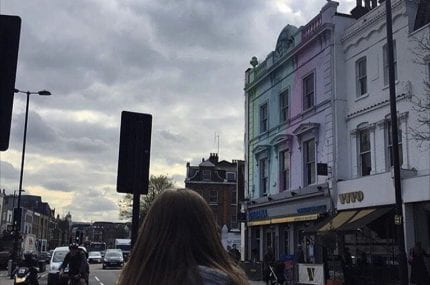
Georgia Spong-More

Hannah Lyon

Danielle Moles
Visual Poetry – Healing is Non-linear
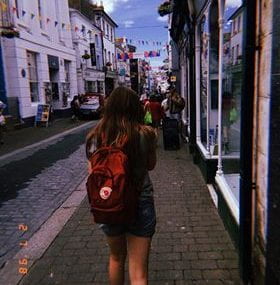
Libby Taylor
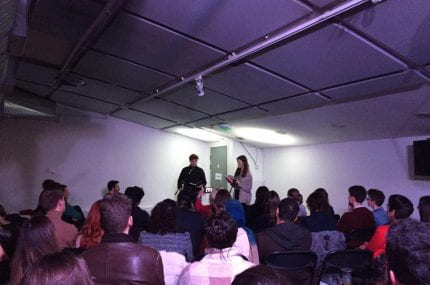
Joseph Marsh
University Camarade Spoken Word Piece

Callum Knight
“Are You Happy?” – Four Poems, Two Years
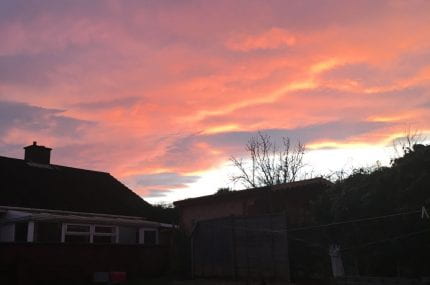
Chelsea Garland
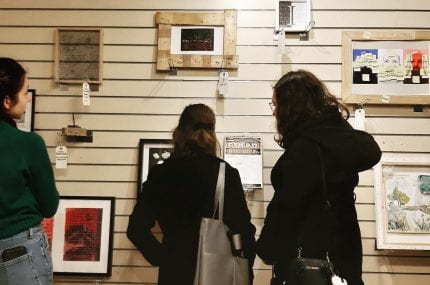
Milly Webster
We use cookies to understand how visitors use our website and to improve the user experience. To find out more, see our Cookies Policy .

PhD Study At Lincoln: Creative Writing
There are so many opportunities for PhD study at the University of Lincoln, one being the Creative Writing PhD which I have been studying for almost a year. This article is going to go into all the information you need if you feel you’re interested in this academic avenue, all the way from the proposal & interview stages, how your studies will work, and all the opportunities doing a PhD brings with it!

Proposal & Prep
When it comes to applying to study a PhD there are a few stages, the main ones being your proposal, interview, and arrangement of funds. However, before you begin to put your proposal together you need to establish that there is someone available in the department who is a) interested and b) available to be your primary supervisor, and someone else available to be your secondary supervisor. Take the time to have conversations with faculty whose expertise fit the best with your project, and if they indicate they’d be able to work with you then you can go ahead and work on your proposal.
Your proposal is not something to be taken lightly, and a good quality proposal will likely take upwards of a month to produce. It must include an overview of what you intend to write – for creative writing the 80,000-word count is split into 60,000 words of creative work (or an equivalent page count if you’re doing poetry/script/another format instead of fiction), and a 20,000-word critical reflection. You must also include key research questions, research methodologies, a provisional bibliography, related works in the literary market, what your project will contribute to said market, a provisional work plan (you would mention here if you’ll be studying full-time (3 years) or part-time (6 years)), and a writing sample.

If your proposal is accepted you will then have an interview with a panel, including your prospective primary and secondary supervisors. Here you will be asked questions about your project both academic and personal, most of which will ask you to elaborate on points you made in your proposal. Also, at this stage, it is completely okay (and frankly encouraged) for you not to be able to answer absolutely everything, because that’s partly what studying a PhD is for – answering those questions. No one will be trying to catch you out, because if you’ve reached the interview stage that means there is genuine interest in your project and the people on your panel really want to see you carry it forward into the PhD.
If accepted you will be notified promptly after the interview, and it’s at this stage that you should apply for funding. If you are under the age of 60 and have not done a PhD before then you are eligible for a loan from Student Finance England to cover your costs, including tuition. However, if you’re uncertain about your financial eligibility then get in contact with Finance at the SU Advice Centre either by phone at 01522 837000, by e-mail at [email protected] , online here https://lincolnsu.com/advice/finance , or you can drop in to see them from 12pm-2pm Monday-Friday in the Advice Centre.

Meetings & Paperwork
So, what to expect when you’re finally enrolled? You’ll receive a number of introductory talks and sessions where you’ll learn about what to expect from your study timeline, such as milestones you’ll be hitting throughout the forthcoming years including your scheduled supervisor meetings. One of the most important things to keep track of, aside from your project itself, is the paperwork you’ll need to fill out as you move through your studies. The PhD is one of the most independent forms of study that exists, so you are responsible for managing your time and ensuring that you submit regular information so your progress is tracked and maintained. This is where time management is going to be essential because I can say from my experience that establishing my writer/admin routine helped me establish my work/life rhythm with these studies so I didn’t become overwhelmed.

Opportunities
Studying a creative writing PhD here at Lincoln not only gives you the chance to obtain the qualification, but also offers many other opportunities for you to create more academic connections, display your work at showcases and conferences, potentially get guest lecturing opportunities, and have access to a wealth of resources and events. In my first year, I gave talks on my work at the 2023 CoA PGR Showcase hosted at Lincoln & the 2023 online EMDoc Conference, this year hosted by Northampton University. I also had a chance to enter this year’s Images of Research Competition, and in 2024 I have plans to guest lecture for some undergraduate creative writing modules. All these opportunities are available to every single creative writing PhD student studying here at Lincoln, and there are so many more besides these. To say that I’m enjoying my Creative Writing PhD here at Lincoln is an understatement. So far I have felt so fulfilled and supported by both the faculty and the work itself, and if you’re considering this avenue I hope this article has been helpful!

- Applications
- Opportunity
- Study skills
- Tips and advice
- University of Lincoln
Meet the author
We use cookies to understand how visitors use our website and to improve the user experience. To find out more, see our Cookies Policy .

IMAGES
VIDEO
COMMENTS
CRW1001M Level 4 2025-26 This module aims to introduce students to a wide range of writing formats offered at the University of Lincoln. Students will be encouraged to try different forms to establish good writing habits, with an emphasis on routine and discipline, and by providing clearly structured creative writing exercises that draw on their reading (textual interventions).
Our MA in Creative Writing is an innovative and exciting course that provides opportunities to work closely with practising creative writers and professionals from the publishing and creative industries. ... may benefit from the experience of a range of writers, editors, dramaturges, producers, and directors who visit the University of Lincoln ...
Introduction to Writing Formats 2025-26 CRW1001M Level 4 2025-26 This module aims to introduce students to a wide range of writing formats offered at the University of Lincoln. Students will be encouraged to try different forms to establish good writing habits, with an emphasis on routine and discipline, and by providing clearly structured creative writing exercises that draw on their reading ...
The Department of English offers an M.A. and Ph.D. specialization in creative writing. Students accepted into the program can take creative writing workshops along with courses in literary studies and composition and rhetoric. The M.A. thesis consists of creative activity and scholarship; Ph.D. students complete a dissertation that includes a book-length work of poetry,
Finally, students will produce a 15,000 word dissertation of their own writing. MA Creative Writing Course Information Pages. For more information, please contact the Programme Leader: Dr Phil Redpath. [email protected] Tel: 01522 886185
University Library Tour Book on to an optional Library Tour at the University Library, so you can get started with your studies, see your learning spaces, and find out what the library has to offer. See availability and book on to a tour here. 10am - 11am : MA Creative Writing: Check-in
Side by side with creative work, students study a core strand from the MA in English Studies programme, designed to provide a theoretical understanding of literary practice. Final assessment takes the form of a 15,000 word dissertation of creative writing in the style and genre of the student's choice.
Search the full text of this site. Results will link to pages containing your terms; results from subject page searches are automatically filtered by that subject.
Creative Writing Portfolio. BA (Hons) English and Creative Writing Graduated in 2021 Graduated in 2022. Eleanor Kennedy Indie Books By Ellie Jay. BA (Hons) English and Creative Writing ... University Camarade Spoken Word Piece. BA (Hons) English and Creative Writing Graduated in 2020. Callum Knight ...
Unlock the University of Lincoln Creative Writing PhD experience with a current student's perspective and insider tips. There are so many opportunities for PhD study at the University of Lincoln, one being the Creative Writing PhD which I have been studying for almost a year. This article is going to go into all the information you need if you ...